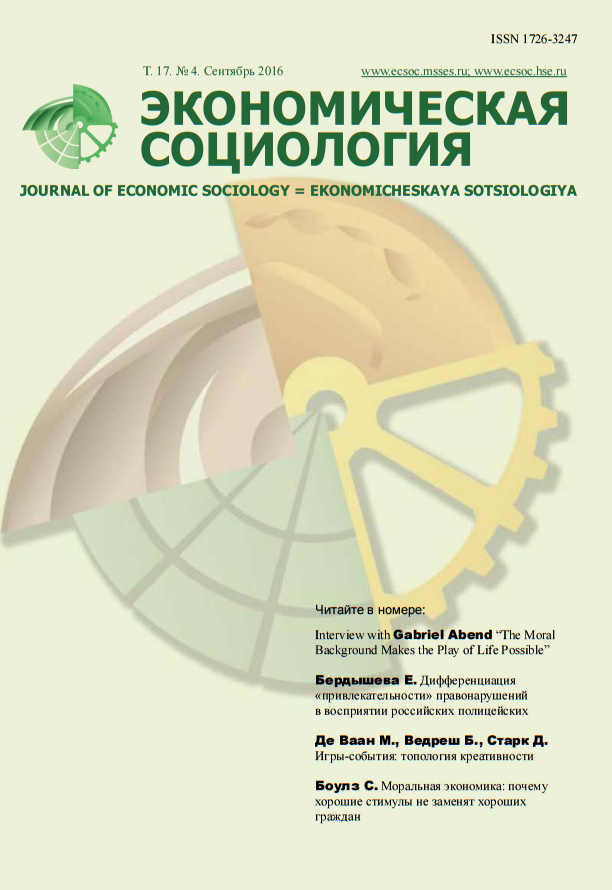Game Changer: The Topology of Creativity
Abstract
The authors seek to find a structural basis for the success of collectively executed projects. Here they continue to use previously elaborated concepts of structural folding and creative tension, but they go on to advance their approach by including the cognitive variables in the analysis instead of merely focusing on social structure. In this article, they examine the sociological factors that explain why some creative teams are able to produce game changers— cultural products that stand out as distinctive while also being critically recognized as outstanding. The authors build on work pointing to structural folding— the network property of a cohesive group whose membership overlaps with that of another cohesive group. They hypothesize that the effects of structural folding on game-changing success are especially strong when overlapping groups are cognitively distant. Measuring social distance separately from cognitive distance and distinctiveness independently from critical acclaim, the authors test their hypothesis about structural folding and cognitive diversity by analyzing team reassembly for 12422 video games and the career histories of 139727 video game developers. When combined with cognitive distance, structural folding channels and mobilizes a productive tension of rules, roles, and codes that promotes successful innovation. In addition to serving as pipes and prisms, network ties are also the source of tools and tensions.













